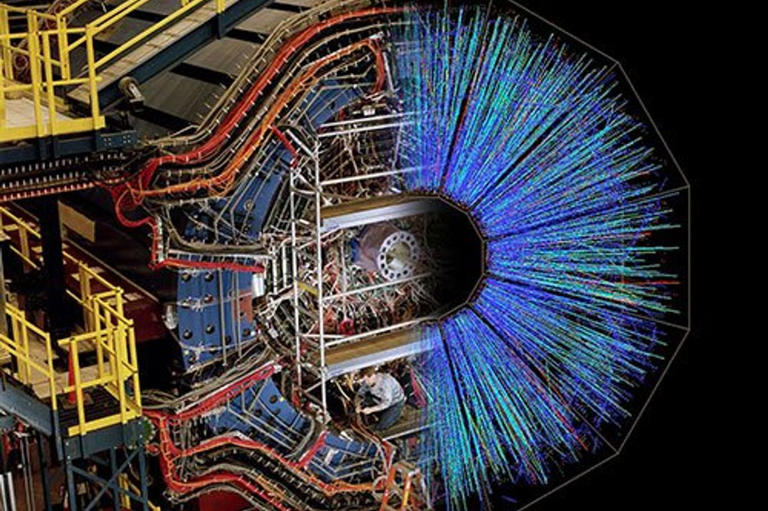Unraveling the Mysteries of Magnetic Fields in Quark-Gluon Plasma
Explore the fascinating world of magnetic fields in quark-gluon plasma and how scientists are unraveling their secrets in particle physics research.

Magnetic Fields in Quark-Gluon Plasma
Magnetic fields are not just the stuff of science fiction; they play a crucial role in our understanding of the universe. Imagine the strongest magnetic force you can think of – a trillion times more powerful than Earth’s magnetic field. That’s the kind of magnetic power found in magnetars, exotic neutron stars.
But here’s the kicker: scientists have uncovered zones on Earth where magnetic bursts rival those of magnetars. How? The story begins at the Relativistic Heavy Ion Collider (RHIC) at the US Department of Energy’s Brookhaven National Laboratory.
The Quest at Brookhaven National Laboratory
At RHIC, scientists collide heavy ions like gold nuclei to explore the deepest secrets of matter. In one of their experiments, they stumbled upon something extraordinary – record-breaking magnetic fields. These fields were generated by the collision of heavy atomic nuclei, unleashing a phenomenon called quark-gluon plasma (QGP).
Unlocking the Mysteries of Quark-Gluon Plasma
Quark-gluon plasma is a state of matter where quarks and gluons, the building blocks of protons and neutrons, exist freely. This state is crucial for understanding the fundamental structure of matter. By studying how quarks and gluons behave in QGP, scientists hope to unlock the mysteries of the universe.
A Glimpse into Particle Physics
In the world of particle physics, quarks and gluons are the stars of the show. These tiny particles hold the key to understanding the fabric of our universe. But catching them in action isn’t easy; they exist for only a fleeting moment inside nuclear particles.
Creating Record-Breaking Magnetic Fields
In their quest to understand quark-gluon plasma, scientists at RHIC created off-center collisions of heavy atomic nuclei like gold. These collisions unleashed powerful magnetic fields that induced an electrical current in the liberated quarks and gluons.
Measuring the Unmeasurable
The magnetic fields generated in these collisions were fleeting, disappearing in less than a blink of an eye. Yet, they were incredibly strong – stronger even than the magnetic fields of magnetars. Despite their brevity, scientists found a way to detect them indirectly.
Tracking Charged Particles
The key lay in tracking the collective motion of charged particles produced during the collisions. These particles provided clues about the existence and behavior of the magnetic fields within the quark-gluon plasma.
Unraveling the Electromagnetic Puzzle
Through meticulous observation and analysis, scientists were able to confirm the presence of electromagnetic fields induced by the powerful magnetic fields within the quark-gluon plasma. This discovery sheds light on Faraday’s induction law, which states that changing magnetic flux induces an electric field.
Understanding Conductivity in Quark-Gluon Plasma
One of the most significant implications of this discovery is its impact on our understanding of the conductivity of quark-gluon plasma. Conductivity is a fundamental property of matter, and measuring it in QGP provides invaluable insights into the behavior of matter under extreme conditions.
The Road Ahead
With evidence of magnetic fields and electromagnetic interactions within quark-gluon plasma, scientists are poised to delve even deeper into the mysteries of particle physics. By studying the conductivity and collective motion of charged particles, they hope to unravel the fundamental properties of matter and the universe.
Conclusion: Exploring the Depths of Particle Physics
In the realm of particle physics, every discovery opens new doors to understanding the universe. The exploration of magnetic fields in quark-gluon plasma represents a milestone in our quest to decipher the mysteries of the cosmos. As scientists continue to push the boundaries of knowledge, we inch closer to unlocking the secrets that lie at the heart of existence.